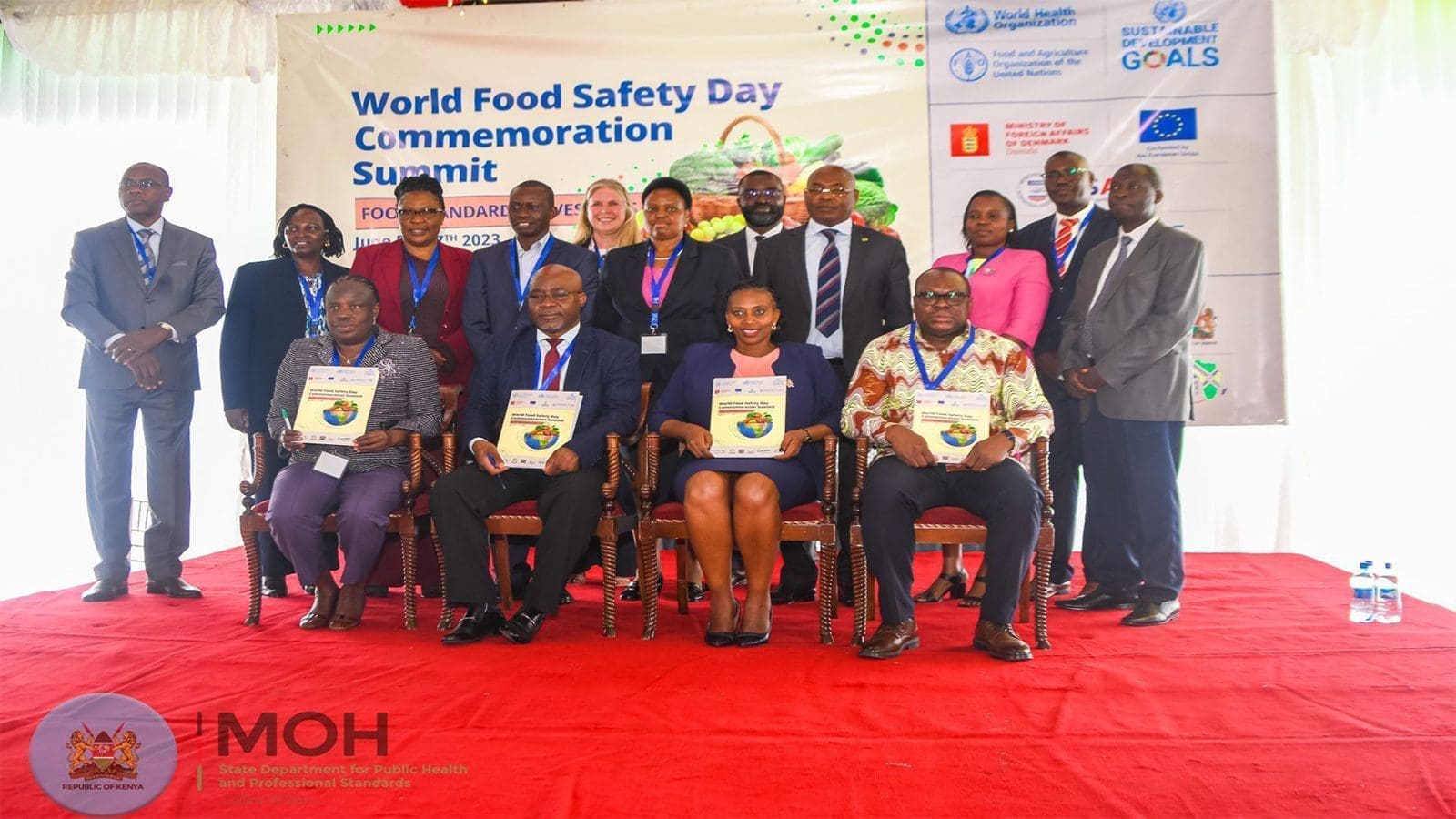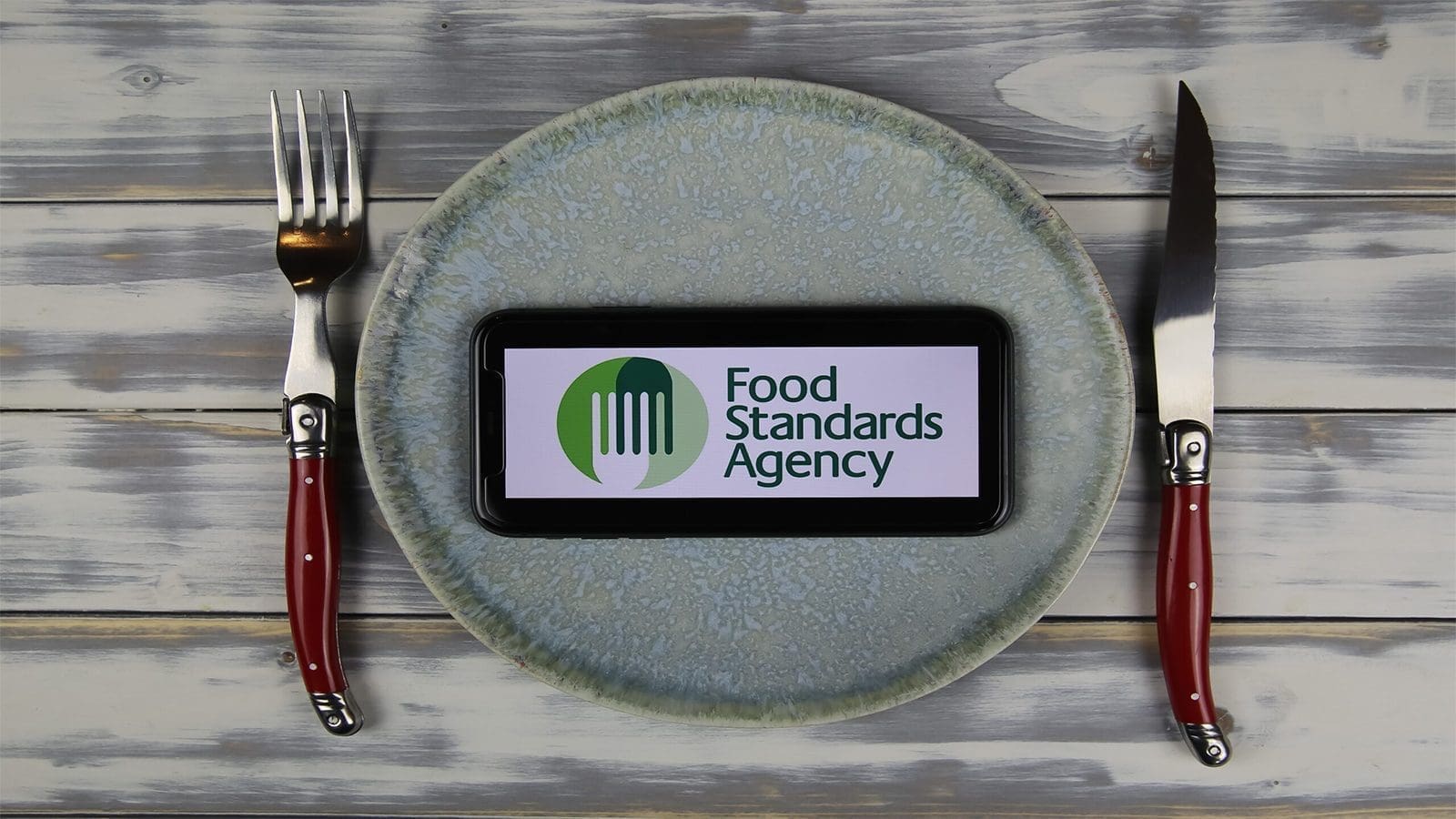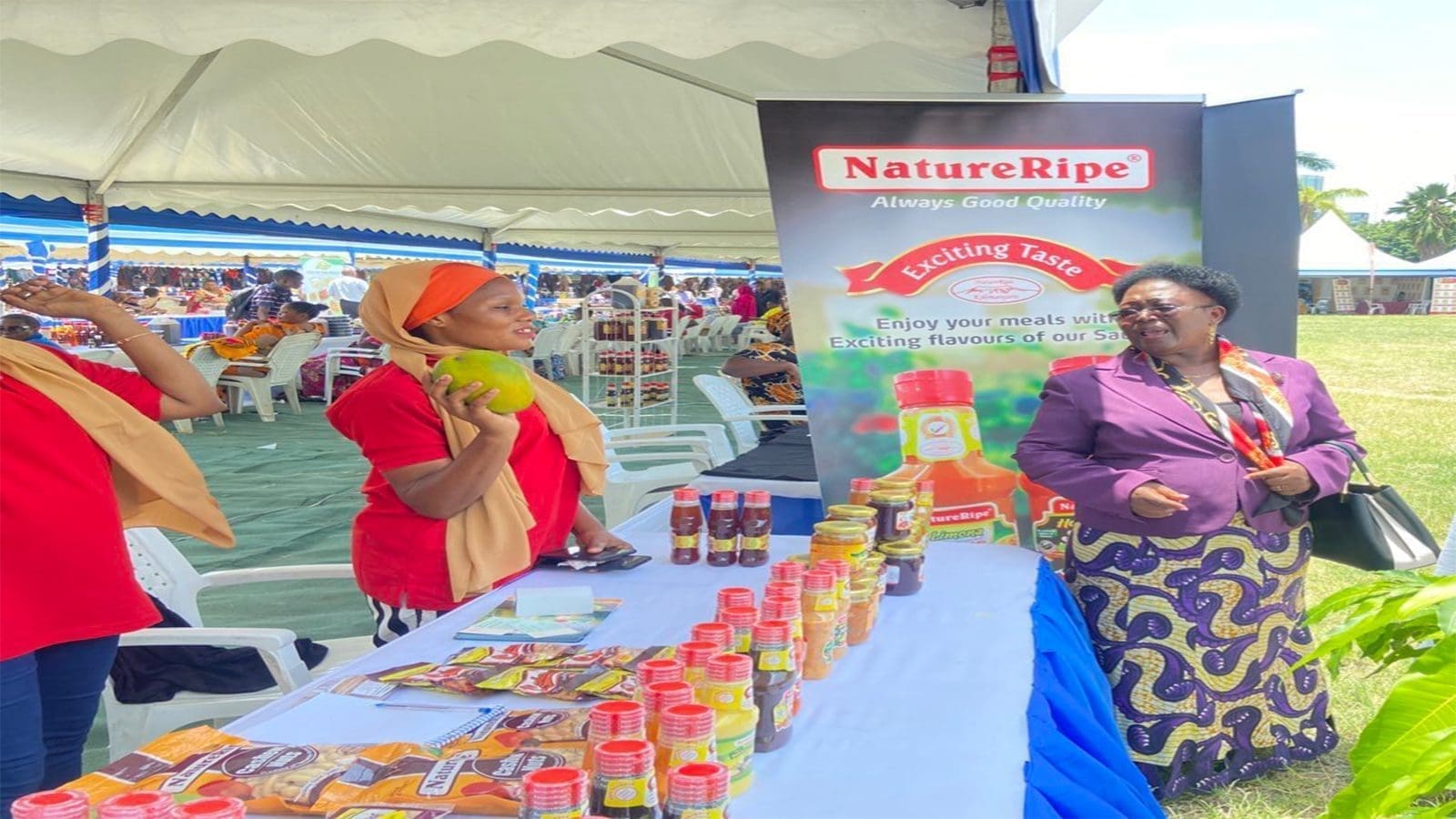AFRICA – In a landmark event marking the fifth edition of World Food Safety Day, Kenya and its African counterparts convened at the prestigious Safari Park Hotel for a three-day summit.
Over 200 participants from 30 African countries gathered to discuss critical food safety issues and address the growing need for collaborative action.
The summit culminated in the adoption of a joint communique called the “Food Safety Commitment Statement,” signifying a unified commitment to food safety across the continent.
Representatives from prominent organizations such as the African Union (AU), East African Community (EAC), Codex Alimentarius, African Organization for Standardization (ARSO), TradeMark Africa, and Micro Enterprises Support Programme Trust (MESPT) were present, demonstrating their dedication to the cause.
During the forum, Mr. Harry Kimtai, the Permanent Secretary (PS) of the State Department of Medical Services, emphasized the importance of focusing on food safety along the entire value chain.
While Kenya boasts a comprehensive set of food safety laws, the challenge lies in their effective implementation, he said.
This is a gap he hopes will be bridged by the Food and Feed Safety bill which was presented before parliament for the first reading on Monday 5 June.
“The bill is expected to address chronic weaknesses in existing regulatory and control systems. It also brings in the food business operators (FBOs) who will be at the center of it,” he said.
Hon. Mary Muriuki, the PS of the State Department of Public Health, disclosed Kenya’s plans to develop an online platform that will serve as both a source of information for the public and a robust food safety surveillance system.
Increased awareness and investment in food safety systems, including adherence to food safety standards, were highlighted as crucial steps to safeguarding consumer well-being.
Throughout the summit, African countries collectively resolved to bolster their participation in international standard bodies, particularly the Codex, to contribute effectively to the development of standards.
They pledged to invest in food safety, focusing on capacity building for value chain actors to manage risks and ensure compliance. Moreover, they committed to enhancing surveillance and monitoring systems by strengthening laboratory capacity, data collection, analysis, and reporting.
The joint communique also underscored the importance of promoting research on food safety, encouraging the development of new technologies, methodologies, and best practices for effective food safety management systems (FSMS), with the aim of mitigating foodborne risks.
In addition, the participating nations pledged to support the implementation of continental, regional, and national food safety policies, frameworks, and strategies.
They emphasized the need to establish robust regulatory mechanisms by developing and enforcing comprehensive food safety policies, regulations, and standards.
Collaboration at the regional and continental levels was encouraged among African Union member states to foster knowledge sharing networks, enhance food safety practices, facilitate trade, and establish partnerships.
Recognizing the significance of public-private sector cooperation, the communique highlighted the importance of strong partnerships to facilitate knowledge transfer, technology adoption, and joint initiatives throughout the entire food value chain.
The Food Safety Commitment Statement was officially signed by the government of Kenya, the EAC, the Economic Community of West African States (ECOWAS), and the AU, solidifying their shared dedication to ensuring food safety across Africa.
This year’s World Food Safety Day, with the theme “Food Standards Save Lives,” emphasizes the critical role of food standards in safeguarding consumers and promoting fair trade globally.
The joint commitment statement aims to harmonize food safety efforts across Africa and enhance collaboration among nations.
Organized by the Ministry of Health Kenya in collaboration with MESPT and other government and development partners, the summit provided a platform for exchanging ideas, experiences, and best practices related to food safety.
Stakeholders also discussed the importance of consumer education and awareness programs to empower individuals to make informed food choices.
For all the latest food safety news from Africa and the World, subscribe to our NEWSLETTER, follow us on Twitter and LinkedIn, like us on Facebook and subscribe to our YouTube channel.








